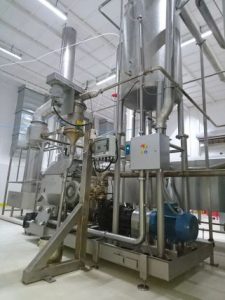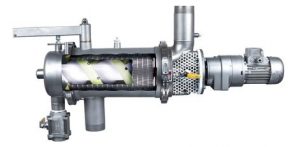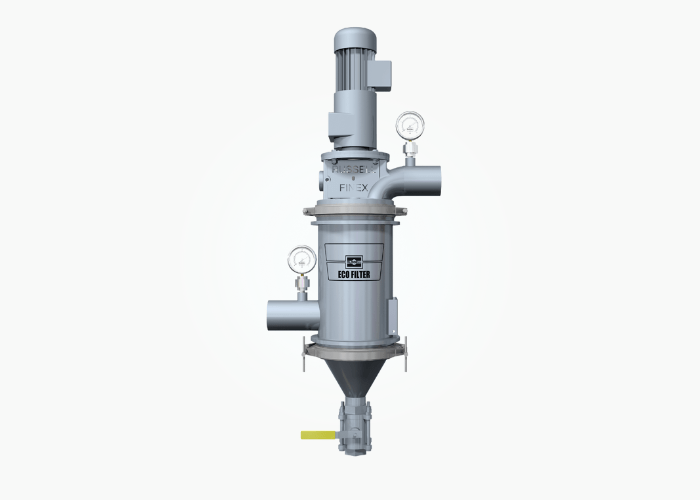Eliminating common problems in food and beverage processing with continuous filtration
When handling products in the food and beverage industry, making certain that the quality of the product is preserved is often of the highest priority for manufacturers and businesses alike. Whether seeking to remove oversize or agglomerates industrial filtration is arguably one of the most important parts in the production process from raw ingredient to consumable product.
What types of filtration are there?
When we talk of filtration in food industry, just as there are many different types of food and beverage products, so are there lots of types of filtration methods when it comes to consistently and reliably safeguarding product quality in the food and beverage industry. Filtration processes such as cartridge filtration – either using non-woven, woven, or mesh materials - is a method of filtration that relies on gravity or pressure to allow the liquid or solid material (such as salt or sand) to pass through. These filter elements, or “microscreens” are one of the most important parts of your filter, and can be used to protect membrane filters further down a process line by removing large oversize particles. Other technologies, like membrane filtration, exist on a smaller scale which can filter products down to submicron level, and are often better suited to water filtration.
The benefits and challenges of food and beverage filtration
Filtration largely serves as a process in industrial manufacturing which minimizes contamination from a product by removing impurities and protects the taste and quality of the food or beverage. The need to provide customers with safe, consumable products is incredibly important for the food and beverage industry, and industrial filtration is best placed to meet and fulfill this challenge.

Another growing trend, which only looks set to increase, is the need for sustainability in industrial manufacturing processes on a global scale. As more than 30% of the world’s global energy consumption can be linked to manufacturing industries, with the rise in greenhouse gases and focus on climate change, there is a pressing need for manufacturers to minimize both its energy consumption and the amount of waste produced during its production processes.
These challenges need to be met for industrial filtration to continue being efficient. Not only does the type of application need to be considered – i.e the viscosity or size and concentration of particles (if it’s a more solid application) - but also the design of the filtration machine. Common, simple processes such as using bag filters are costly and wasteful from an environmental perspective, with the frequent need to replace the bags hampering production processes.
Due to this rapid expansion, there is now a greater emphasis being placed on the need for industrial machinery to meet the stringent standards set by organizations such as the HACCP, HAZOP, and the FDA.
Optimization and application of industrial filtration
These challenges show not only the importance of industrial filtration, but the overwhelming need for manufacturers to include filters within, or to optimize, their processing lines to ensure their business can continue to meet a rapidly changing market.
Products such as chocolate and oil are popular applications in the food and beverage industry, which require the final output to be of the highest hygiene and quality standards, so they are fit for consumption.

About Russell Finex
With 85 years’ experience in the filtration and sieving industry, Russell Finex is the ideal industrial manufacturer to provide such innovative equipment, in order to suit any application in the food and beverage industry. To find out more about how this machine is the ideal solution for all your filtration needs, contact us today.
